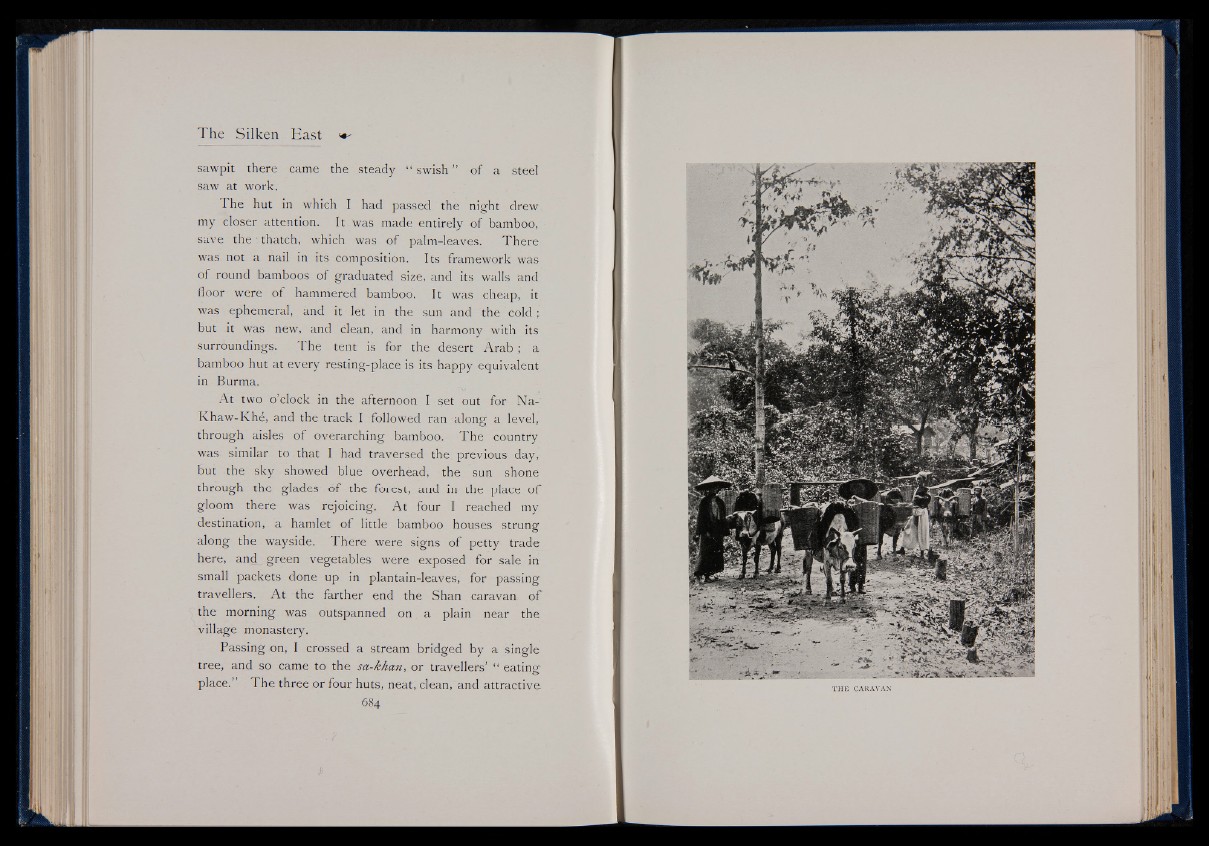
sawpit there came the steady “ swish ” of a steel
saw at work.
1 he hut in which I had passed the night drew,
my closer attention. It was made entirely of bamboo,
save the • thatch, which was of palm-leaves. There
was not a nail in its composition. Its framework was
of round bamboos of graduated size, and its walls and
floor were of hammered bamboo. It was cheap, it
was ephemeral, and it let in the sun and the cold;
but it was new, and clean, and in harmony with its
surroundings. The tent is for the desert Arab ; a
bamboo hut at every resting-place is its happy equivalent
in Burma.
At two o’clock in the afternoon I set out for Na-
Khaw-Khe, and the track I followed ran along a level,
through aisles of overarching bamboo. The country
was similar to that I had traversed the previous day,
but the sky showed blue overhead, the sun shone
through the glades of the forest, and in the place o f
gloom there was rejoicing. At four I reached my
destination, a hamlet of little bamboo houses strung
along the wayside. There were signs of petty trade
here, and green vegetables were exposed for sale in
small packets done up in plantain-leaves, for passing
travellers. At the farther end the Shan caravan o f
the morning was outspanned on a plain near the
village monastery.
Passing on, I crossed a stream bridged by a single
tree, and so came to the sa-khan, or travellers’ “ eatinsr
place.” The three or four huts, neat, clean, and attractive